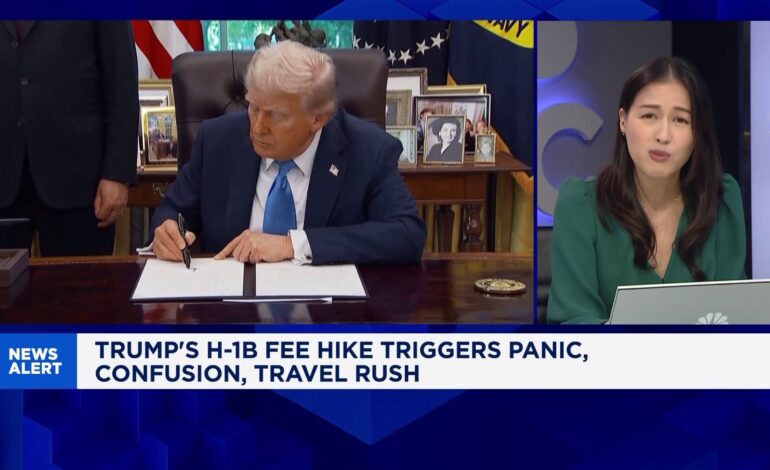China Eyes Opportunity as US H-1B Changes Disrupt Talent Flow

The recent changes to the United States H-1B visa program have created significant uncertainty for foreign professionals seeking to work in the country. As a result, China is positioning itself to attract this talent, highlighting its potential benefits for its growing industries.
The H-1B visa program has long been a pathway for skilled workers, particularly in the technology sector, to gain employment in the United States. However, new regulations and procedural changes implemented in 2023 have disrupted this process, leading to a backlog of applications and increased scrutiny of applicants. Many professionals are now reconsidering their options and looking at alternative destinations, with China emerging as a prominent contender.
China’s Growing Appeal for Foreign Professionals
China’s robust economy and rapidly expanding technology sector have made it an attractive destination for foreign talent. Cities like Beijing and Shanghai are offering competitive salaries and incentives to draw skilled workers, especially in areas such as artificial intelligence, software development, and biotechnology. As these industries continue to thrive, the demand for qualified professionals is surging.
In response to the H-1B changes, Chinese companies are ramping up their recruitment efforts. According to a report from the China International Talent Exchange Association, the country aims to attract over 1 million foreign professionals by 2025. This ambitious goal reflects China’s recognition of the importance of diverse talent in fostering innovation and economic growth.
Moreover, the Chinese government has introduced various policies to streamline the visa application process for skilled workers. These initiatives include expedited processing times and reduced bureaucratic hurdles, making it easier for foreign professionals to relocate to China.
Impact on the Global Talent Landscape
The shifting dynamics of the H-1B visa program may lead to a significant realignment of the global talent landscape. Many experts believe that as the United States becomes less accessible for foreign workers, countries like China, Canada, and Germany could see a surge in applications from skilled professionals.
The potential influx of talent into China could enhance its competitive edge in various sectors. By harnessing the skills and expertise of foreign professionals, Chinese companies can drive innovation and improve their global standing. This shift may also encourage local talent to enhance their skills in order to remain competitive in the evolving job market.
Moreover, the changing landscape may prompt U.S. companies to reconsider their talent acquisition strategies. Some may look to establish offices or partnerships in countries like China to access a broader talent pool. This could lead to increased collaboration between nations, fostering a more interconnected global workforce.
While the changes to the H-1B visa program present challenges for many foreign workers, they also open new avenues for those willing to explore opportunities in China. As the country positions itself to welcome skilled professionals, the potential benefits for its economy and industries could be significant.
As China continues to adapt to the evolving global talent landscape, its success in attracting foreign professionals will depend on its ability to create an inclusive and supportive environment. With the right policies and incentives in place, China could capitalize on the current disruptions in the U.S. visa system, ultimately benefiting its economy and the global workforce.






